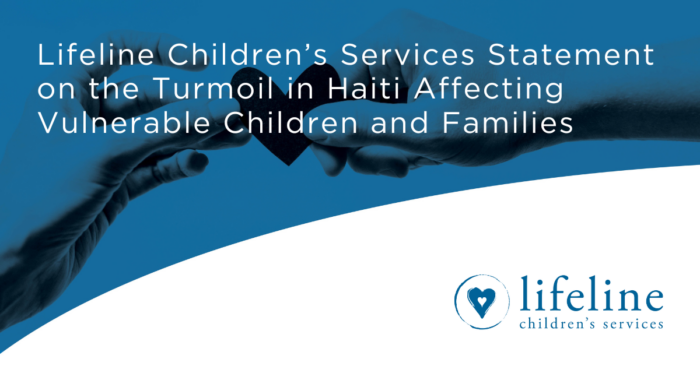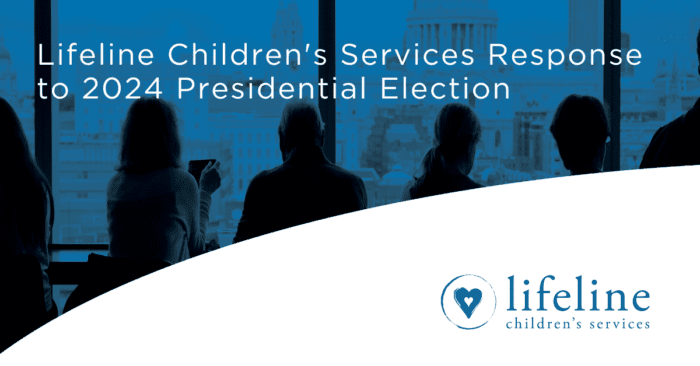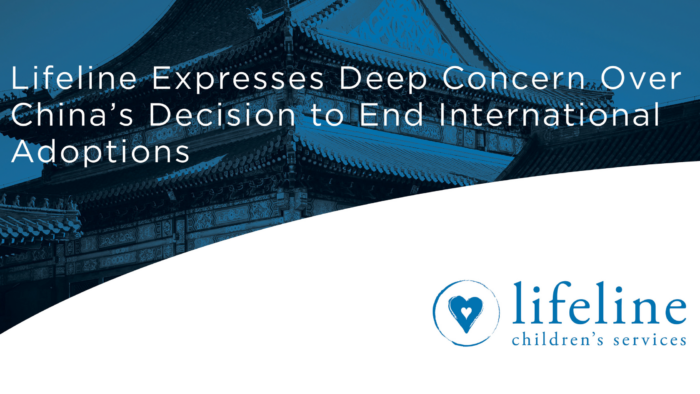Infertility, Grief, and Parenthood
By Jenny Riddle, with Traci Newell
Sitting on a stool in front of a large group of potential adoptive parents, she felt inexperienced and inadequate, but she had been asked to be part of a panel during training for these parents. She was an adoptive mom who had been led to that path sooner than she and her husband anticipated. Their journey with infertility was painful, and the challenges of attaching with their son had opened doors for new battles with it. The panel moderator asked, “What was the most difficult thing you have faced as adoptive parents?” Several things flashed through this mom’s mind: difficult medical decisions and procedures, attaching, difficult behavior, becoming first-time parents of a mobile child with medical needs who couldn’t speak the same language. But what she found most profoundly difficult was “overcoming the lie that God didn’t intend for me to be a parent because of our infertility.” Her confidence as a parent was rooted in what she thought God did or didn’t want for her, and it impacted the way she interacted with her son. As she described her answer, she noticed a lady in the back corner of the room, tears streaming down her face. She knew immediately they had shared the same journey. Perhaps God had brought her inadequacy there for such a time to speak truth to another mother’s heart—that she was worthy to be a mom because God had made her so.
That story is a true one. I know the details because I was the woman on the stool. I have now been a mom to a precious son for almost nine years, but the journey to parenthood through adoption was a difficult one that began with my own grief of infertility. The subject isn’t a widely discussed topic. It makes people uncomfortable. It’s not a conversation that people generally want at a party or the dinner table. But that’s precisely why I wanted to talk about it here with our Lifeline families. We walk with families through hard stuff to help each other be rooted deeply in the truth. Then, as parents, we can plant good seeds in our children.
I worked with Traci Newell and Angela Mains to gather solid principles alongside practical information for families who have walked or are walking with others on the path of infertility. Traci is the National Director of Families Count (TM) and a licensed social worker. Angela Mains is Lifeline’s program director for counseling services and a licensed professional counselor supervisor.
For many couples, the impetus to begin the adoption or foster care process (ever or at a particular time) is through the path of infertility. However, launching into the challenges of parenting through adoption or fostering with unresolved issues can create friction of grief between all parties; while a child is experiencing the grief of being separated from all they know, parents are dealing with unmet and possibly unrealistic expectations in a way that none of their friends or family ever have.
Nevertheless, walking through the grief of infertility is complicated. For most couples, infertility is what Kenneth Doka, an experienced grief counselor and therapist, coined “disenfranchised grief.” The subject is uncomfortable and a source of embarrassment or shame for many, so they remain silent. A couple isn’t likely to display selfies at their appointment with a fertility specialist on social media. They aren’t likely to request their addition to the church prayer chain. If more than the couple and their doctors know about the situation, it is only a select few. Infertility is mainly dealt with in silence and isolation, making support and healing challenging to find. As a result, closure and resolution can be fleeting.
Couples may decide to become parents through adoption without working toward resolving their grief. However, Traci warns, “While having loss in common with your child can provide a solid foundation for future grief-related discussions, couples should face any negative feelings surrounding infertility work toward resolution of those feelings before pursuing foster care/adoption. Otherwise, it may be significantly harder for parents to attend to the needs of a grieving child placed in their home or to create a healthy place for their child to explore their own grief arising from their placement into another family.”
Yet, as Traci also points out, “When parents have reached a point of acceptance of their own losses, they can send clear messages to their child(ren) that they are real children who belong and are loved, no matter how they entered their forever family. God brings families together through different means, and one family is not better, more real, or more loved than another.” Therefore, processing grief prior to and after bringing a child into the home is essential for the healing and well-being of everyone.
Working Through the Grief of Infertility
Several key actions will assist couples in coming to a stable resolution of their grief.
- Talk openly and often.
Having intentional conversations with each other is an excellent place for husbands and wives to start. Admitting sadness, disappointment, or anger can promote healing and allow validation. Even years down the road, it is not unusual for one or both spouses to assume that the other person is fine, when in fact, they may need a safe place to discuss emotions or any recent events that have stirred grief. There may be a time to include a neutral person in the conversation. Infertility can feel overwhelming, and some couples may believe they are unequipped for these discussions. Involving someone with personal experience in infertility or a professional counselor can create safety for husbands and wives to express their thoughts and feelings.
- Seek community with others in similar circumstances.
Isolated grief can be grief exacerbated. Talking with others who have traveled or are traveling a similar path can provide comfort and diminish feelings of isolation. Some churches offer support groups to couples walking through infertility. Surrounding yourself with other men and women who have faced this type of loss can be a catalyst for healing and can offer a place for future connection when needed.
- Dispel myths like “God knew I didn’t need to be a parent” or “My body is defective and worthless.”
Admitting these thoughts aloud by sharing them with another person can be helpful. Combatting the thought of personal responsibility for infertility may require others’ assurance and reminders of your worth in the gospel. Although becoming parents through foster care or adoption may not be what couples had planned, God’s wise foreknowledge in all things assures us of His good plans, which may include a different kind of parenting than what they expected.
- Take care of your heart.
God’s word instructs us to “guard [our] hearts” because [they] are “the wellspring of life” (Prov. 4:23). Ignoring the pain of infertility does not allow joy and life to flow from the heart. Instead, seeking help to overcome false ideologies and resulting shame or blame can bring healing that will flow into others’ lives.
- Create your own act of closure.
Closure is challenging to find throughout infertility, as much of the loss was in dreams and desires. There is not a burial for what never was. There is not a memorial service for the death of your dreams. Without a natural act of conclusion to the process, the mental resolution of loss can be difficult to grasp. Although the loss will always be part of your story, consider a way to mark when you have reached the ability to live at peace with God in it. Options could include journaling, making something, planting a tree, competing in an athletic event, or buying a piece of jewelry.
When a couple has worked through their grief of infertility, they may consider the following questions to see if they are ready to enter a different path to parenthood:
- Have you come to a place of acceptance and peace about your situation? The answer to this question does not mean that you will never grieve the loss again but that you are at peace to trust God’s plan for your story, and you feel whole in Him.
- Are you looking to adoption or foster care as a solution to infertility? If you are looking for a child to “fix” your grief or pain, you place too much expectation on them. A child does not exist to make you complete as a parent.
- Do you feel like you are settling for adoption? If you consider adoption as a consolation prize, take a step back and wait.
- Are you as excited about parenthood as you were about conception? The end goal of having a child isn’t to hold a baby but to be a parent, with all the good, bad, and ugly that it brings.
- Are both spouses on the same page? Adoption and foster care are journeys that require both spouses to be fully on board. Wait and pray if you are on different pages, chapters, or even in different books.
- Are you prepared to love a child that doesn’t share your DNA? Children that come into your home through adoption or foster care will not share your biology. They may not share your skin tone, the shape of your eyes, or your type of hair. There is beauty to behold in diversity, and you should be ready to love a child who does not carry on your genetic makeup as much as one that would.
Grieving Infertility as a Parent
Even when parents walk entirely through the grief of infertility before adoption or fostering, life will inevitably raise grief and pain to the surface throughout the years. That’s normal. Therefore, parents who have walked the path of infertility must be grief-aware. The following paragraphs list several circumstances that may bring grief to light again.
- The Grief of Difficult or Imperfect Parenting
As shared in the opening story, challenges in parenting can cause doubt to erupt about your worthiness or adequacy as a parent. Parenting a child from adoption or foster care adds multiple layers of challenges. Situations like parental rejection, difficult trauma behaviors, attachment challenges, or your own normal but sinful reactions to circumstances have a way of bringing infertility grief and uncertainty to the surface again. Talking through these emotions with those you trust and grounding oneself in the Word of God will help to enforce His adequacy through you and His deep love for you despite mistakes, challenges, and situations you cannot control.
- The Grief from Others
Sometimes friends and family misunderstand your situation or make well-intending (or ill-intending) comments to you. Despite any good intentions, their misguided actions or words can leave you with a range of emotions, from simple hurt feelings to a restrained desire to hit something. Phrases such as “If you adopt, you will probably get pregnant” or “One day you’ll have your own child” can compound sorrow and rob you of the joy of parenting the children in your home. If unattended to, the grief that forms around the pressure from loved ones can be a breeding ground for relational strife and other complications. A situation may require honest conversations or a simple “My children are my own” reply. Seek wisdom from prayer and your trusted support group in what may be best for each situation.
- The Grief of Important Occasions
A sense of loss following infertility can reappear throughout life, especially at times of celebration like Mother’s Day or the birth of someone else’s child. Seeing posts on social media in which friends’ children look like miniature versions of their parents can elicit grief feelings, as your children may look nothing like you. Realizing these possibilities is important. These events can be grief triggers. Although resurfacing feelings do not usually indicate a spiral into depression, identifying recurring grief is essential. Simply being aware of occasions such as holidays and grief anniversary dates will allow parents to take necessary steps to be gracious to their children and themselves and take any action needed to address their grief constructively.
- The Grief of Sharing Your Child
When there has been recognition and resolution of the loss of fertility, you can more confidently acknowledge all of your child’s story. This openness removes delicate responsibility from a child to care for their parents’ feelings while healthily exploring their own story. This kind of openness also promotes reunification with birth family out of foster care, which is most commonly the goal when a child enters care. Most parents understand the need to walk openly with their children through questions and thoughts about their families of origin. Even developmental conversations about how babies are made will inevitably lead to a discussion that children from adoption or foster care did not grow in the womb of the mother who is raising them. That truth can be painful. Confusing feelings are normal, and acknowledging them is healthy. Some men and women parenting through adoption may struggle with the reality that another person shares the title of “Mom” or “Dad” with them. This struggle is an understandable area of hurt when a deep desire of the heart may be to have complete ownership of that role because of your connection to your child and yearning to parent. The Lord always welcomes sincere prayers about your struggles and sharing your hurt with Him, even when doing the best for your children means pain for you.
These situations are just a few that may arise when couples parent from adoption or foster care. There is much nuance and depth to the grief of infertility and parenting that we cannot discuss all here. Still, being aware of the ongoing nature of infertility grief, even when a child has entered the home, will go a long way toward healing for both parents and children. Parents being well-rooted in their own resolution of grief and acknowledgment of God’s good will for their lives is imperative to sowing healthy seeds in the lives of children. If you would like to talk with one of Lifeline’s counselors about infertility and how it is impacting your family, please reach out to us at 205-967-0811 or lifelinechild.org/family-counseling.




